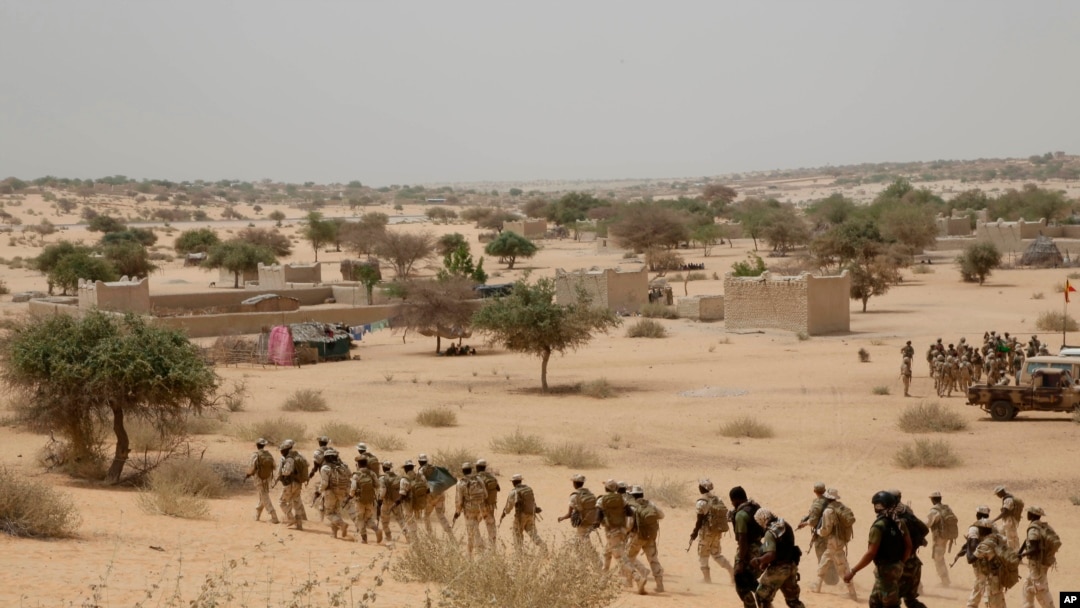The new U.S. government push comes after security leaders from the Global Coalition to Defeat ISIS pledged to support African security agencies in dealing with the terrorist group.
The 85-member coalition, met in Morocco to discuss ways of dislodging fighters allied to ISIS from Mali, Burkina Faso, Mozambique and several other African countries where activities have ramped up in recent years.
Chris Landberg. the State Department’s acting principal deputy coordinator for counterterrorism, outlines how this new funding will be applied.
“We’re looking to use it to improve capabilities of our partnered civilian, law enforcement, and judiciary with the goals of disrupting and apprehending, prosecuting, and convicting terrorists across the continent,” he said.
Akinola Olojo, at the Institute for Security Studies, says the ISIS affiliates in Africa are different from each other and will require tailored strategies to defeat them.
“While we recognize that there seems to be a similarity at a certain level, we need to understand these [groups'] nuances in order to have approaches that adequately match what is manifesting in the different contexts,” he said.
The Deputy Special Envoy for the Global Coalition, Doug Hoyt, said countering the militants’ messaging is critical, especially its targeting of African youth.
“What we’re emphasizing with communications is it’s not top-down, it’s bottom-up. So we start at the local level and we work with member governments and we tailor this messaging in language and customs and traditions and what’s going on here, and we very much want the African members out front on that,” he said.
The U.N. Global Counter-Terrorism Strategy, an international effort to counter terrorism, calls for nations to address the conditions terror groups use to spread their violence. It also aims at building the states’ capacity to prevent and combat terrorism while adopting measures to respect human rights and the rule of law.
Olojo says African security agencies were encouraged to use different ways to tackle terrorism apart from the usual military response.
“Hard responses have a role to play, of course, but then going beyond this to address governance gaps, addressing ideologies pushed by these affiliates, addressing issues of human rights violations," he said. "Engaging communities more deeply or more effectively, having a dialogue on several levels within communities. All these components are things that are highlighted at this meeting and then we see how they fit into a broader approach.”
U.S. officials say the lessons used to weaken ISIS in Iraq and Syria can be apply in Africa but will need individuals present on the continent to get results.


